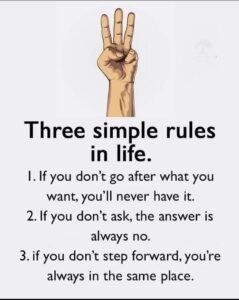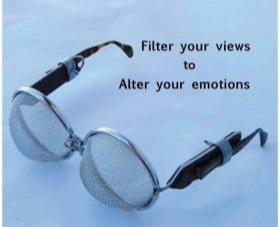Judge not, that ye be not judged. Mt. 7:1
If and when we are called upon to arbitrate in disputes, be it between children or two bickering acquaintances or in case of a minor accident where both parties claim that the other was at fault the pressure to be fair is tremendous. It is precisely in these kind of situations that the temptation to pass quick judgment pressurizes us into being poor listeners and even poorer arbitrators and the net result is that our own competence and values are under cloud. Suddenly we are being judged and the verdict possibly embarrassing. The reality is that we cannot escape our responsibilities but we surely can ensure that we do a competent job of it.
As we traverse through life, there are numerous occasions when consciously or unconsciously we pass judgment, most of it based on our perceptions. Yes, perceptions are one of those major influencers that prod us on to pass judgments based less on facts and more on feelings. Perceptions are instantaneous judgment passed about a person or situations which are influenced by past experience, our personal frame of reference and the scene as it appears to us at first sight. As an example just visualize the image that comes to mind when you hear the word European or Chinese. Did you visualize a dark skinned European or Chinese? We are conditioned to visualize certain characteristics and traits based on hear say, learning and influenced by our personal biases.
Facts they say are sacrosanct. In a court of law all judgment is based on the facts made available and the evidence placed before the judiciary. It therefore stands to reason that when we have to judge we too should base our decisions on the facts available. We however have a tendency to prejudge an issue and succumb to the temptation of fitting the evidence to suit our point of view. Assume for a moment that a close friend is involved in a squabble with a neighbor and you happen to be at the scene. It is obvious that if you had to pass judgment, the reality of your friendship with one party will influence your judgment which more often than not will be in favor of your friend. Personal bias has a disproportionate influence on our judgment.
When judging others we need to be humane and take a holistic view of the case. Just because a student was caught cheating in an exam once, we cannot brand him / her a cheater and rob them of their dignity. We need to also look at the mitigating circumstances for man is not born with bad intent but circumstances and fate may have conspired to put him/ her in the docks. A person committing a robbery in order to treat his ailing wife or kids must have been driven by desperation and would have to be treated differently from that of a habitual robber. We are particularly unkind in our judgment of differently abled people for example, who we pity rather than appreciate their steely resolve and spirit in competing with the rest of the able bodied population. Despite our education and ability to read and understand the vast majority of us have precious knowledge of those having varied problems relating to the mental faculties. We brand all people who suffer from the slightest mentally challenging problems be it slow learners, autistic children, those having motor neuron illness etc. as mad.
Finally judgment is all about a consistent value system being in place. A high profile senior executive who falsifies his expense statement or fudges the accounts of his corporate are considered wiz kids simply because they manage to please most of the interested parties. If one looks around and tracks the numerous cases of high profile financial fraud, plagiarism by the respected academicians, falsified scientific claims by highly rated scientists and the crooked means adopted by thick skinned politicians to further their own interest we realize that their crime was a result of poor judgment shown by them when they subverted their value systems for short term gains. Their crime has now come to haunt them, embarrass them and punish them; their error of judgment notwithstanding.
Remember: “We judge others by their behavior. We judge ourselves by our intentions.” Ian Percy
Try this:
- Recollect a situation in your life where you were wrongly accused of a crime you didn’t do. E.g. You did not create disturbance in the classroom but the teacher punished you. What were you feelings? Did you want to get even with those who passed the wrong judgment on you? Did you ever once think of the numerous times you went scot free although you were guilty of misdemeanor that deserved punishment?
- Read the story about the cookie thief that illustrates how our judgment can go horribly wrong sometimes. http://www.buddhapadipa.org/plinks/PSAG-77RUEG
This post is courtesy www.actspot.com
You are also invited to visit our WEEKLY Inspirational and Motivational Blog www.poweract.blogspot.com






This Post Has 0 Comments
good